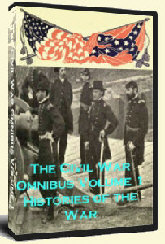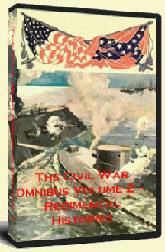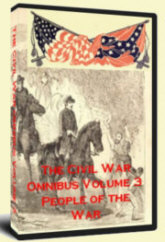I would make this war as severe as possible, and show no symptoms of tiring till the South begs for mercy. William Tecumseh Sherman
Rarely has an historical figure been both as revered and reviled as William Tecumseh Sherman. For Northerners, Sherman is the man who almost singlehandedly brought about the end of a civil war more bloody and bitter than any war fought before or since on American soil. For Southerners, he is a monster, an arbiter of destruction more brutal and complete than any seen before or since on American soil.
To military tacticians and historians, Sherman is considered the first modern military leader, one whose “total war” on the Southern states he blazed a trail through during his vaunted “march to the sea” would be duplicated in the bombing of London by the Germans in the 1940s, the napalm attacks in Vietnam in the 1960s, and almost every other major war since the Civil War.
A graduate of West Point and a military officer, Sherman failed at both banking and law before accepting a position as the superintendent of the Louisiana State Seminary of Learning & Military Academy in Pineville, Louisiana. He was a popular and respected leader of the students there, students he would later face in battle.
Sherman left the school that would later become Louisiana State University just after the secession of Louisiana; shortly thereafter he became a colonel in the U.S. Infantry.
Sherman’s early career was noteworthy only for the ire he stirred both in his fellow Union soldiers and the press. The concerns he voiced about the preparedness of the U.S. Army in the face of the Confederate forces resulted in his being labeled “crazy” by many. He lost his appointed position, was transferred to another company, and suffered a depressive episode, during which he took leave and returned home to Ohio.
When Sherman returned to service, he was eventually placed under the command of General Grant, a fortuitous pairing. After admirable accomplishments at Shiloh, Vicksburg, and Chattanooga, Grant placed Sherman in control of the entire U.S. Army on the western front. Sherman’s strategy was thus: while Grant dealt with General Lee and the Army of Northern Virginia to the east, Sherman would wreak utter havoc on the west, beginning in Georgia, the ultimate goal the Atlantic Ocean.
If the people raise a great howl against my barbarity and cruelty, I will answer that war is war, and not popularity seeking. William Tecumseh Sherman
Barbarity and cruelty was indeed what Sherman wrought. With an army of nearly 100,000 men, Sherman set his sights on Atlanta, and in September of 1864, captured the city. He ordered all civilians out, and proceeded to burn most of the city. This feat gave him renown, and helped to re-elect Lincoln in that fall’s presidential race.
Sherman and his men continued on toward Savannah, with Sherman boasting that he would “make Georgia howl.” His numbers now down to around 60,000, Sherman and his men descended upon the people of Georgia, using their food, animals, and whatever else needed as provisions, leaving a scorched trail of destruction in their wake. Sherman himself once estimated that he and his men caused over $100 million dollars in damage in Georgia.
And take Savannah he did. He telegraphed Lincoln shortly before December 25, 1864: “I beg to present you as a Christmas gift the City of Savannah, with one hundred and fifty guns and plenty of ammunition, also about twenty-five thousand bales of cotton.”
Sherman’s “hard war,” as he called it, was horrifying for white southerners, salvation for slaves. His goal was simple; in his own words, Sherman explained what would later become known as total war:
My aim, then, was to whip the rebels, to humble their pride, to follow them to their inmost recesses, and make them fear and dread us. Fear is the beginning of wisdom.
By declaring war not on the Confederate Army, but on the South as a whole, Sherman hastened the end of the war. The estimated $100 million dollars in damages included 300 miles of railroad, innumerable bridges, most of the telegraph lines in Georgia and later South Carolina. Travel and communication difficulties were the least of the destruction; Sherman’s armies seized approximately 5,000 horses, 4,000 mules, and 13,000 head of cattle, while appropriating approximately 9.5 million pounds of corn and 10.5 million pounds of fodder. King Cotton was attacked, as well; many cotton gins and mills were also destroyed by Sherman and his men.
Sherman’s “hard war” brought the South to its knees. The Confederacy fell soon thereafter, as much a casualties of hard war as any other factor.
Are you a fan of the American Civil War?
Do you love reading about its history?
If that describes you, you need to check out The Civil War Omnibus – the most comprehensive digital collection of Civil War works available. The Civil War Omnibus represents 100s of key and hard to find references to the Civil War for any fan of the war.
Learn more about The Civil War Omnibus project by visiting http://www.thecivilwaromnibus.com.


